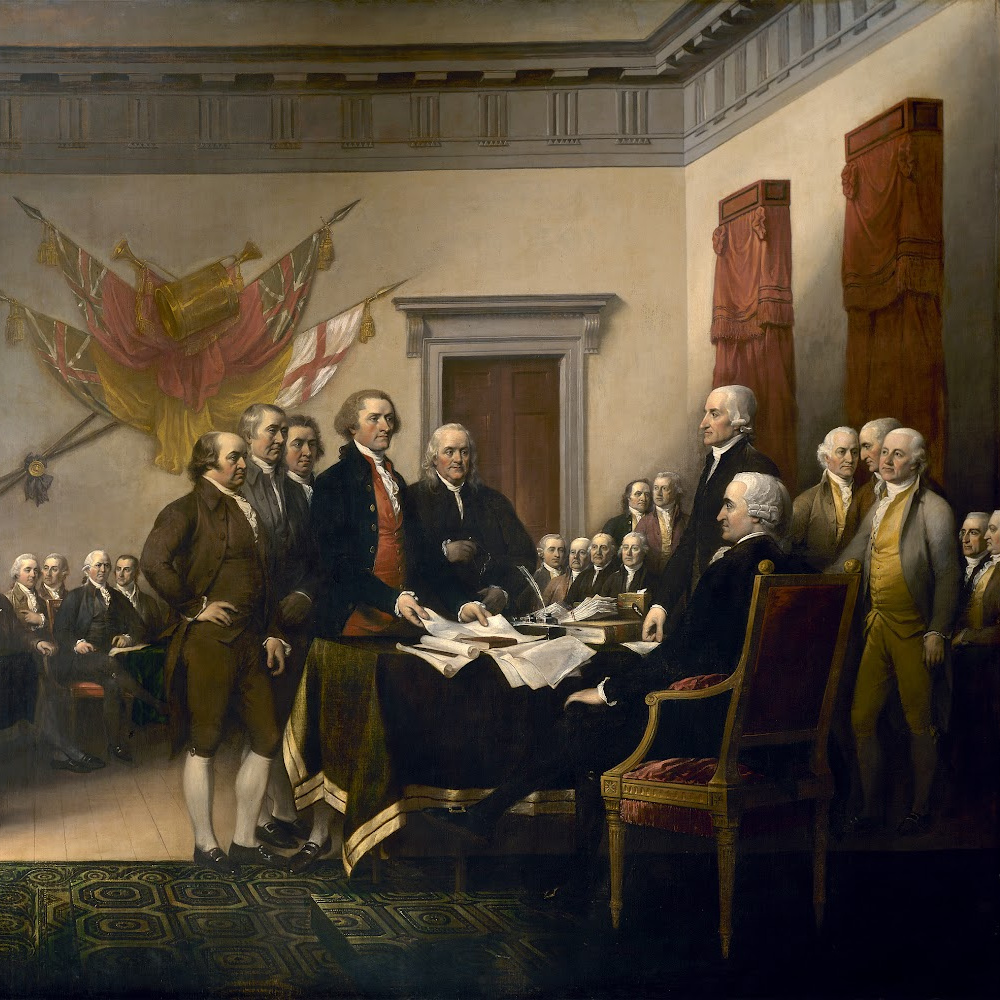If scripture was a person, it might describe itself with the words of 19th-century American poet Walt Whitman: “I am large, I contain multitudes.”
Latter-day Saints accept the Hebrew Bible, the Christian New Testament, the Book of Mormon, the Doctrine and Covenants, and the Pearl of Great Price as God’s words—as far as they are understood correctly. Depending on the verse we read, these words can be sweet or bitter, delightful or difficult. Or both at the same time.
We need gentle, feeling, agile hearts like hers—hearts that sniff out even the most subtle hints of injustice
These texts outline the path to salvation, teach us how to find enduring joy, and contain words that, as one biblical prophet said, are like “a hammer splitting rock” (Jeremiah 23:29, Robert Alter Translation). Yet each book is also a work of sharp self-criticism. The Hebrew Bible has stories of murder, rape, and deceit, even among some prophets and revered kings. The New Testament exposes the chief apostle’s tragic hypocrisy and the tribalistic impulses of some of Christ’s first followers. The Book of Mormon begins with a dysfunctional family that branches out into two warring nations, one of which destroys the other. The Doctrine and Covenants calls people out by name for their sins. The Pearl of Great Price shows us a Father in Heaven who wept real tears at the failure of His children to love each other.
Taken together, their lessons are worth more to us than all the world’s wealth.
In this moment when the United States reels from despicable scenes of injustice surrounding the death of George Floyd, my thoughts have turned to scripture’s beautiful yet strange teachings on race relations. Grappling with scriptural descriptions of race is hard, as is wrestling with the persistent racism of our time. Even so, we ought to embrace the challenge so we can progress toward solutions.
On a recent Sunday morning, I thought it good to read about race in the scriptures with our three girls (ages 10, 7, and 4). We read verses that tell us everyone is a child of God, a fellow brother or sister in a divine global family. We read about how each person deserves our kindness and mercy, no matter their skin color or their past. We also read from some of the more uncomfortable stories.
As usual, this brief family reading time passed by without much reaction from my daughters. What I did not anticipate was my wife’s visceral revulsion to 2 Nephi 5:21, one of the first verses (and an uncomfortable one at that) about race in the Book of Mormon (also see 1 Nephi 12:23). She later told me that she does not understand why things like this are written in our holy books—especially when it is so easy for misunderstanding minds to hijack such words for their cause.
‘It was sweet as honey in my mouth, but … my stomach was made bitter’
Our vast array of scripture is like a large orchard with a variety of fruit designed to helps us properly order the loves of our lives and orient them toward God. Some of this fruit can be plucked and enjoyed right away. Other fruit requires more effort to prepare and consume. Think of an apple or a raspberry (easy) compared with a pineapple or a pomegranate (more difficult).
On the topic of race, we have this comforting and ready-to-go truth plucked from the tree of Nephi: “[God invites] them all to come unto him and partake of his goodness … black and white … all are alike unto God” (2 Nephi 26:33). Or this from the tree of his brother Jacob: “Revile no more against [the Lamanites] because of the darkness of their skins; neither shall ye revile against them because of their filthiness; but ye shall remember your own filthiness” (Jacob 3:9). These words are clear and sensical, beautiful and delicious.
But we soon bump up against verses such as 2 Nephi 5:21. Though Nephi and at least some of his family taught the fundamental equality of all God’s children, here we encounter the beginning of a racial division that will impact the entire 1,000-year history of the Book of Mormon. Nephi tells of a curse that came upon his two rebellious brothers and their families and friends (later known as Lamanites). Why a curse? “Because of their iniquity.” They would not listen to Nephi and even tried to kill him. They had, Nephi says, “become like unto a flint”—a hard, dark quartz. So, “that they might not be enticing unto my people,” Nephi tells us, “the Lord God did cause a skin of blackness to come upon them.”
Other lines in scripture also pass awkwardly through 21st-century ears. In the Book of Moses, a significant part of Joseph Smith’s revision of the Book of Genesis, we read this: “A blackness came upon all the children of Canaan, that they were despised among all people.” Another verse says, “the seed of Cain were black, and had not place among” the sons of Adam.
These phrases sound terrible in 2020. It is as if we have bitten into the rough outer shell of a pineapple, the part not meant for consumption. Is this what the apostle John had in mind when he ate a book that was “sweet as honey in my mouth, but when I had eaten it, my stomach was made bitter”? What is going on here?
Establishing context to avoid pretext
The God of the Latter-day Saints and other Christians expects us to love Him with every mite of our minds. We must not simply tiptoe past the challenging stories about race. We must look them directly in the eyes. We must keep reading. We must read carefully. We must put things in proper context. The late Christian apologist Ravi Zacharias often taught that “any text wrenched from its context is in danger of becoming a pretext.” When we read carefully, we discover that skin color is at most secondary, while one’s heart condition is primary.
One line after Nephi writes of the curse given to his brothers, he records the voice of God this way (all emphases are mine): “I will cause that [the Lamanites] shall be loathsome unto thy people [the Nephites] save they shall repent of their iniquities” (2 Nephi 5:22). The condition of the heart is mutable. Mormon, a later prophet and the main editor of the Book of Mormon, explains the change in skin color in a similar vein: “And this was done that [the Nephites] might be distinguished from the seed of their brethren, that thereby the Lord God might preserve his people; that they might not mix and believe in incorrect traditions which would prove their destruction.” God’s first concern, both in Nephi’s and Mormon’s view, is that we do not violate our very natures and destroy our souls through sin.
Mormon also tells us something else important about curses. “Every man that is cursed [brings] upon himself his own condemnation.” This squares with another scripture: “We believe men will be punished for their own sins.” Whether black or white, male or female, we make choices. Some bring us closer to God; others move us further away from the Father of Lights. Consequences are blind to skin color.
Perhaps more important than this being what Nephi understood as the initial sign of a curse, the black skin given to the Lamanites seems to be a great test of altruistic integrity for the Nephites. The temptation to feel superior to their Lamanite brothers and sisters must have seemed overpowering. If you have ever felt better than someone—because your education is more prestigious, your home more spacious, your bank account more capacious—this will make sense. Pride inflates us and we cease to see the imago Dei in the face of our neighbor. We know from Jacob’s sermon quoted earlier that the Nephites often failed in this regard. In fact, this and other missteps led to the entire destruction of their civilization.
The Book of Moses lists what seem to be two groups of people who are black: the children of Canaan (a grandson of Noah) and the seed of Cain (the first son of Adam, known for murdering his brother Abel). No indication is given that their racial makeup is a sign of a curse. We know only that the children of Canaan’s skin color made them “despised among all people.” We also know that the seed of Cain “had not place among” the descendants of Adam. Is God sanctioning one group of his children hating another? Or is the author simply stating a fact from that time—these people hated that people?
Enoch, a descendent of Adam and the narrator of this portion of the story, speaks of a city of his time that is so righteous that it is called Zion, the “City of Holiness.” (Later it will be raptured to heaven.) “Surely,” Enoch says to God, “Zion shall dwell in safety forever.” Not so fast, his Heavenly Father replies. “Zion have I blessed, but the residue of the people have I cursed.” Who comprises this residue worthy of a curse? All the sons of Adam except the descendants of Cain. Though the record says the children of Canaan and Cain were black, despised, and had no land among the sons of Adam, the curse applies only to those who “fought against God.”
Later, as God looks upon that same residue of the sons of Adam, he weeps. It is in this context that we receive one of scripture’s strongest condemnations of hate. God tells Enoch, “Unto thy brethren have I said, and also given commandment, that they should love one another, and that they should choose me, their Father. But behold, they are without affection, and they hate their own blood.”
These words come with special force today. Who has not wept while watching the video of George Floyd pinned to the ground with a knee to his neck? We have good company in our moral outrage. From Enoch, we learn that such cruelty is so despicable, so revolting, so unfeeling, that it causes even God to weep. Anything that can move the Supreme Being of the universe to tears should give us sharp pause.
Questions remain, but so should love
Even if our attempts at more careful reading do clear up some concerns, other questions remain.
Why did God have to make skin color an issue in the first place? (Or was it the sons of Adam and the Nephites themselves who turned it into something negative?)
Why do other parts of the Book of Mormon describe the Lamanites’ skin becoming whiter as they become more righteous (see 3 Nephi 2:15) if the color of one’s skin is irrelevant to righteousness? Is this simply a poorly worded sentence? An example of one of the “mistakes of men” that Moroni sensibly acknowledges to exist in the Book of Mormon?
What do we do with the difficult parts of scripture? Ignore them? Carefully excise them as Thomas Jefferson did with the miracles and resurrection of Christ?
It is better, I believe, to embrace the steep struggle that leads to deeper understanding. And better still to exert similar effort to love and understand our fellow travelers on this planet who do not look or think or act the way we do. For too many, this is anything but the common sense it should be.
God has given us a perplexing puzzle to solve. Experienced puzzlers start with the edges. Phrases scattered throughout the Latter-day Saint canon help us create a proper frame for dealing with difference. “Choose life,” “love your neighbor as yourself,” and “be one” are among them. When embraced and applied, they offer a lovely foundation for life.
Though I did not understand my wife’s response to 2 Nephi 5:21, her reaction has become a gift. We need gentle, feeling, agile hearts like hers—hearts that sniff out even the most subtle hints of injustice instead of hearts dulled and numbed by today’s missionaries of misunderstanding and malevolence. It is good to notice when something bothers us and then explore why. This is the spark of the Holy Spirit. We then need constructive ways to work through our conflicted feelings. A careful reading of sacred texts is one tool because, to return to Walt Whitman, they are large. They contain multitudes of cultures and perspectives and circumstances that must be thoroughly considered.
As Shakespeare’s Antonio reminds us in The Merchant of Venice, “the devil can cite Scripture for his purpose.” We must see and interpret scripture with the mind and intent of Christ. Then, we must act according to the integrity of our knowledge so we can help establish heaven on earth.
God knows we need it.



















